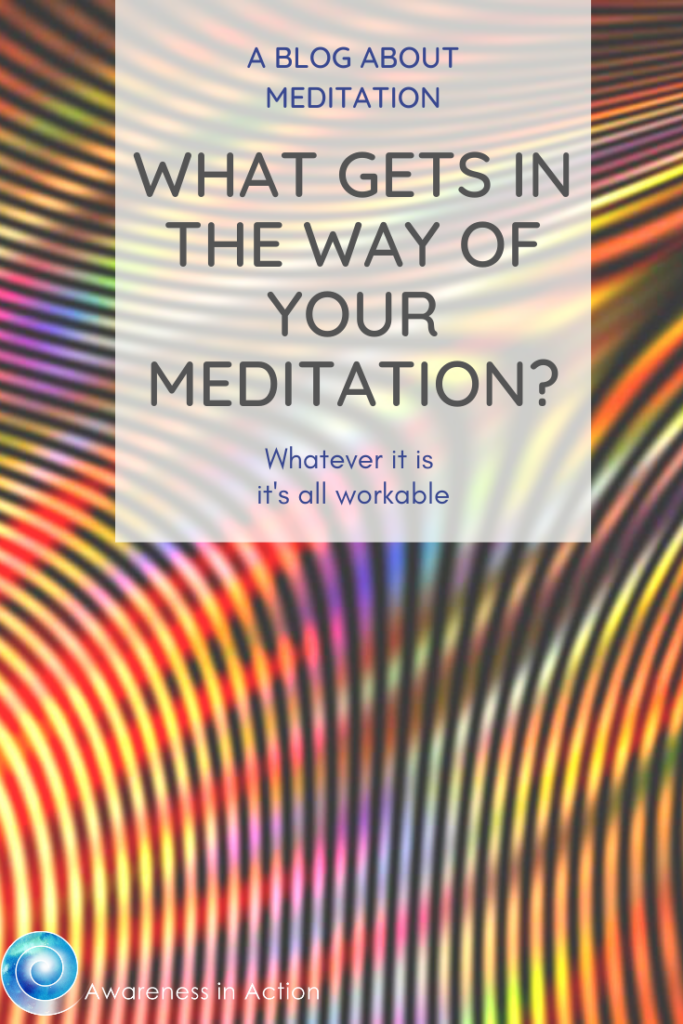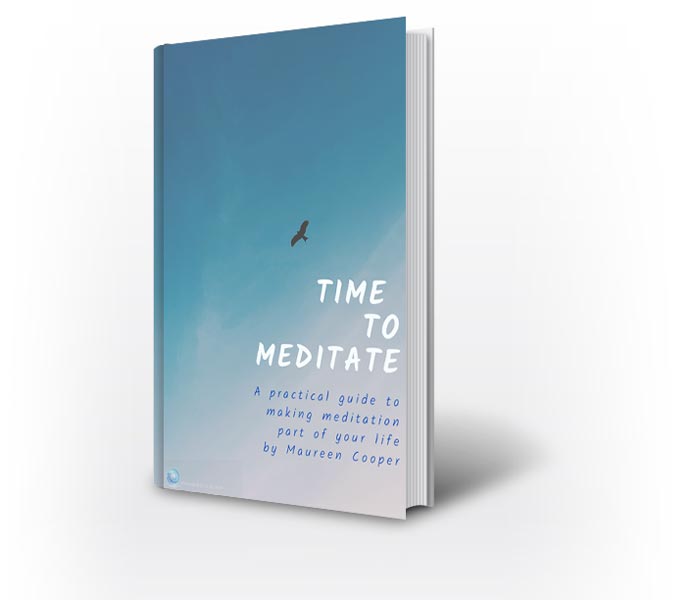Meditation is quite easy to learn and it’s not hard to practice. What can be hard is to make it part of your life. Do you find that there is a lot of stuff that gets in the wayof your meditation?
We are not used to meditating
There is a lot of talk about how mindfulness and meditation are so popular these days. It’s true that things have certainly changed from when I was a child. Nowadays everyone knows what meditation is, or thinks they do. We hear of various famous people who are said to practice meditation. It’s easy to find books, articles, apps and lots of courses on meditation.
This is all great, but it does not change the fact that we are not used to it.
For those of us living in the west, it’s really only in the last fifty or so years that meditation has been available to us. It’s a new addition for most people. It is only beginning to be accepted in certain areas of society—it’s certainly not something that everyone does. You don’t walk down the street and see billboards urging you to meditate. TV shows are not full of people meditating.
When I was a child there was even less talk of meditation. I would have loved to have had lessons in school. My life could have been quite different. Now meditation is beginning to be taught in schools. This is a wonderful development. Our education system is so focused on getting across all the right information. It’s a shame that learning how to work with our minds is just down to us.
Those of us who are meditators support each other through our communities but we are not mainstream. We are still working out how to make meditation part of our lives.
It is not always comfortable to sit with your mind
One result of not being used to meditation is that we can feel some resistance to it. Although we have heard of all the benefitsand we want to try it ourselves, it is not always comfortable. Sitting quietly with your mind is not always easy to do. Timothy Wilson of the University of Virginia led a piece of research into how people react when they are asked to sit quietly without anything to occupy them. People reported feeling uncomfortable. Shockingly, in some cases people went for the option of giving themselves electric shocksjust to have something to do.
Part of our unfamiliarity with meditation means that we are not always sure if we want the benefits that it brings. We want inner peace but secretly worry that it might be boring. When we don’t feel like meditating it can even feel like we don’t really want to let go of our old habits. We like what we are familiar with—even if it causes us problems. Often in workshops I have had long interactions with people who are convinced that their stress is just ‘how things are’ and that there is nothing they can do to change things.
When you have been meditating for a while, your confidence grows in the feeling of stability that it brings. You stop looking for answers and begin to accept the quietening down of the mind as a way of it returning to its natural state.
There never seems to be enough time
On a more practical level, thinking that there is not enough time certainly gets in the way of your meditation. Most people live busy lives juggling work, family and trying to have some fun. We might want to meditate but we don’t know how to fit it in. Trying to do it in the morning means we have to get up too early. When we come home in the evening, we are too tired. Forget trying to do it during the day because things are happening much too fast.
At the risk of being repetitive, a lot of this comes down to not being used to meditation. If you look carefully, there are actually lots of timesfor short meditations during the day. It helps if we can just be quite natural about it. Taking a moment to watch your breath while standing in a queue is like a tiny meditation session. There can be many times like that—stopping at traffic lights, waiting for the bus, when you go to the loo.
You can also use all the ordinary, routine activities that you do every day as mindfulness exercises. Try cleaning your teeth mindfully or taking a shower. When you cook dinner, notice each of your actions and stay present with them. Try not to let your mind wander to what you have to do next.
All these small moments help us to get used to meditation. They make room for meditation in our life and help to make it a habit.
There is so much stuff going on in our minds
Traditional Buddhist teachings on meditation the mind is likened to a wild elephantthat needs to be tamed. Although we might not like to think of our minds being like a wild elephant, we do know that for much of the time we don’t seem to have so much control over where our minds go, or how they behave. In fact, if we are honest, we know that there really is nothing that our mind cannot think about, or how far out it can get.
All this noise in the mind can get in the way of your meditation. It’s not that we don’t want to meditate but our minds are so busy that it can over rule our intention to meditate. That’s why it is important to do regular short sessions. It helps our mind get more used to quietening down.
It’s easy to get discouraged
We hear so much good stuff about meditation that it can be disappointing when we do not see an immediate difference in our experience. Society is geared towards the quick and the instant result. We can see from how we surf the internet how impatient we can get when things don’t open fast enough.
Once we start meditation, we want to get it right. We want to be experts. It is easy to get frustrated at how much our mind wanders.
The thing is that there is no such thing as a bad meditation. Every time we meditate we are managing to create new neural pathwaysin our brain that will help us to make mediation a habit. Research is showing that changes can be found in the brain after practicing meditation for just eight weeks. We can learn to be patient with our wandering mind. Each time it strays from the method, we just notice and bring it back. That’s how meditation happens.
What to do when things get in the way of your meditation?
Having an enormous sense of humour about the whole thing really helps. Meditation is important but we don’t need to take ourselves too seriously. We also don’t need to give ourselves a bad time about it all.
I remember so clearly the moment when it really dawned on me that it was my choice to meditate. Yes, my meditation teacher was encouraging me, but no-one was forcing me to do anything that I did not want to do. I had adopted an attitude towards meditation like taking a nasty medicine because it was supposed to be good for me. Suddenly it hit me that if I truly realised the benefits of meditation, then it would seem natural to want to try and make space for it. It was such a relief! I could drop all my attitude and just get down to trying to find a way to fit it in.
Now I see meditation much more like cleaning my teeth. It’s something that I do several times a day. It helps my dental hygiene and I understand that it’s necessary and important. Just like I don’t want to go out with my mouth smelling bad, I want to work with my mind. If I don’t want my mind to run away with me and go wild, I need to meditate. There’s nothing to struggle about any more.


TIME TO MEDITATE
A 60-page e-book packed full of practical tips and guidance on how to make meditation part of your life

